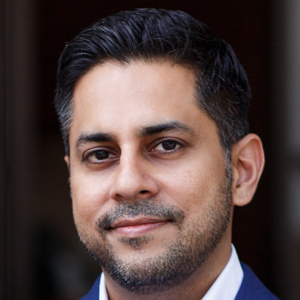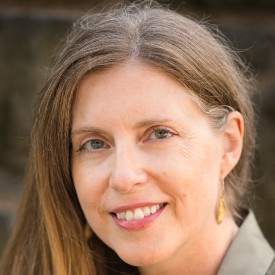This is an edited excerpt from Vishen Lakhiani’s book, The Code of the Extraordinary Mind, in which he writes about creating meaningful success for yourself as an individual.
Often people confuse means goals with end goals. We choose college majors, career paths, life paths as if they were ends in themselves, when in reality they’re a means to an end. End goals are the beautiful, exciting rewards of being human on planet Earth. They’re about experiencing love, traveling around the world being truly happy, contributing to the planet because doing so gives you meaning, and learning a new skill for the pure joy of it. They bring you joy in and of themselves, not because they confer any outward label, standard, or value attached by society. Nor are end goals undertaken for the purpose of pay or for material reward.
Means goals are the things that society tells us we need to have in place to get to happiness. When means goals become your focus, you miss the point.
The Three Most Important Questions
I developed an improved goal-setting technique to get you to ends goals. I call it the Three Most Important Questions. When these questions are asked in the correct order, this exercise can help you jump straight to the “end” goals that really matter in your life.
I’ve found that all end goals fall into three different buckets.
The first is experiences. No matter what you believe about humanity’s origins, one thing is clear. We’re here to experience all the world has to offer—not objects, not money, but experiences. Money and objects only generate experiences. Experiences also give us happiness in the now, a key component of the extraordinary life. We need to feel that daily life holds wonder and excitement to sustain our happiness—which fuels our movement toward our goals.
The second is growth. Growth deepens our wisdom and awareness. It may be growth we choose or growth that chooses us. Growth makes life an endless journey of discovery.
The third is contribution. It is what we give back from the wealth of our experiences and growth. What we give is the special mark we can make on the world. Giving moves us toward awakening, the highest level of happiness, by providing meaning in our lives, and it is a key component of the extraordinary life.
Trending: Best Happiness Books of 2025 (So Far)
Think about these three essentials framed as questions.
- What experiences do you want to have in this lifetime?
- How do you want to grow?
- How do you want to contribute?

Let’s play out these questions in more detail.
Question 1: What experiences do you want to have?
In this section, you are asking yourself this question:
If time and money were no object and I did not have to seek anyone’s permission, what kinds of experiences would my soul crave?
Let’s apply this to the first four items in the Twelve Areas of Balance. Each of these four items relates to experiences:
1. Your love relationship. What does your ideal love relationship look like? Imagine it in all its facets: how you communicate, what you have in common, the activities you do together, what a day in your life together looks like, what holidays are like, what moral and ethical beliefs you share, what type of wild passionate sex you are having.
2. Your friendships. What experiences would you like to share with friends? Who are the friends you’d share these experiences with? What are your ideal friends like? Picture your social life in a perfect world—the people, the places, the conversation, the activities. What does the perfect weekend with your friends look like?
3. Your adventures. Spend a few minutes thinking about people who’ve had what you consider to be amazing adventures. What did they do? Where did they go? How do you define adventure? What places have you always wanted to see? What adventurous things have you always wanted to do? What kinds of adventures would make your soul sing?
4. Your environment. In this amazing life of yours, what would your home look like? What would it feel like to come back to this place? Describe your favorite room—what would be in this wonderful space? What would be the most heavenly bed you can imagine sleeping in? What kind of car would you drive if you could have any car you wanted? Now imagine the perfect workspace: Describe where you could do your best work. When you go out, what kinds of restaurants and hotels would you love to visit?
Question 2: how do you want to grow?
When you watch how young children soak up information, you realize how deeply wired we are to learn and grow. Personal growth can and should happen throughout life, not just when we’re children. In this section, you’re essentially asking yourself:
Trending: Why Rest is the Biggest Productivity Hack for Your Brain
In order to have the experiences above, how do I have to grow? What sort of man or woman do I need to evolve into?
Notice how this question ties to the previous one? Now, consider these four categories from the Twelve Areas of Balance:
5. Your health and fitness. Describe how you want to feel and look every day. What about five, ten, or twenty years from now? What eating and fitness systems would you like to have? What health or fitness systems would you like to explore, not because you think you ought to but because you’re curious and want to? Are there fitness goals you’d like to achieve purely for the thrill of knowing you accomplished them (whether it’s hiking a mountain, learning to tap dance, or getting in a routine of going to the gym)?
6. Your intellectual life. What do you need to learn in order to have the experiences you listed above? What would you love to learn? What books and movies would stretch your mind and tastes? What kinds of art, music, or theater would you like to know more about? Are there languages you want to master? Remember to focus on end goals—choosing learning opportunities where the joy is in the learning itself, and the learning is not merely a means to an end, such as a diploma.
7. Your skills. What skills would help you thrive at your job and would you enjoy mastering? If you’d love to switch gears professionally, what skills would it take to do that? What are some skills you want to learn just for fun? What would make you happy and proud to know how to do? If you could go back to school to learn anything you wanted just for the joy of it, what would that be?
8. Your spiritual life. Where are you now spiritually, and where would you like to be? Would you like to move deeper into the spiritual practice you already have or try out others? What is your highest aspiration for your spiritual practice? Would you like to learn things like lucid dreaming, deep states of meditation, or ways to overcome fear, worry, or stress?
Question 3: how do you want to contribute?
In keeping with His Holiness the Dalai Lama’s message, as I mentioned earlier, if you want to be happy, make other people happy. This question explores how all of your unique experiences and growth can help you con-tribute to the world. It doesn’t have to be a big dramatic gesture—perhaps it’s inviting the new neighbors over for a cookout or taking the new hire out for lunch, playing the piano at a nursing home, helping rescued animals get adopted, or spearheading a clothing drive at work.
In this section, you’re essentially asking yourself:
If I have the experiences above and have grown in these remarkable ways, then how can I give back to the world?
Trending: How to Break Free From the Ambition Trap
Again, notice how this question connects to the previous two. Imagine what you can give in these areas of the Twelve Areas of Balance:
9. Your career. What are your visions for your career? What level of competence do you want to achieve and why? How would you like to improve your workplace or company? What contribution to your field would you like to make? If your career does not currently seem to contribute anything meaningful to the world, take a closer look—is that because the work is truly meaningless or does it just not have meaning to you? What career would you like to get into?
10. Your creative. What creative activities do you love to do or what would you like to learn? It could be anything from cooking to singing to photography (my own passion) to painting to writing poetry to developing software. What are some ways you can share your creative self with the world?
11. Your family life. Picture yourself being with your family not as you think you “should” be but in ways that fill you with happiness. What are you doing and saying? What wonderful experiences are you having together? What values do you want to embody and pass along? What can you contribute to your family that is unique to you? Keep in mind that your family doesn’t have to be a traditional family—ideas along those lines are often Brules. “Family” may be cohabiting partners, a same-sex partner, a marriage where you decided not to have children, or a single life where you consider a few close friends as family. Don’t fall into society’s definition of family. Instead, create a new model of reality and think of family as those whom you truly love and want to spend time with.
12. Your community life. This could be your friends, your neighborhood, your city, state, nation, religious community, or the world community. How would you like to contribute to your community? Looking at all of your abilities, all of your ideas, all of the unique experiences you’ve had that make you the person you are, what is the mark you want to leave on the world that excites and deeply satisfies you? For me, it’s reforming global education for our children. What is it for you? This brings us to Law 8.
The takeaway:
Create a vision for your future. Extraordinary minds create a vision for their future that is decidedly their own and free from expectations of the culturescape. Their vision is focused on end goals that strike a direct chord with their happiness.
Reprinted from The Code of the Extraordinary Mind by Vishen Lakhiani. © 2016 by Vishen Lakhiani. By permission of Rodale Books.































